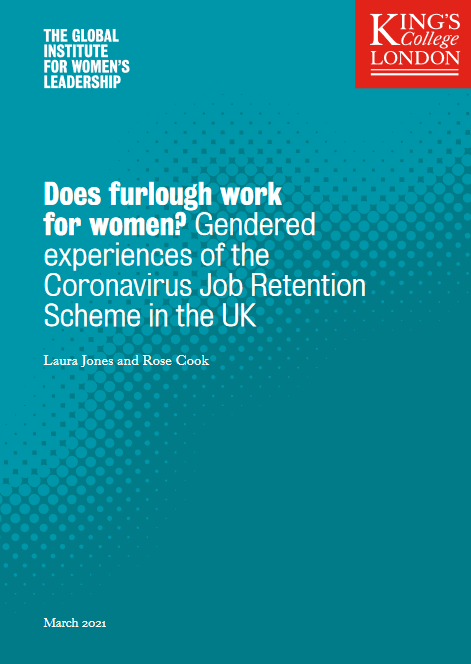The UK government’s furlough scheme may not be doing enough to address the economic impacts of the coronavirus crisis on women, according to new analysis.
The research, by the Global Institute for Women’s Leadership at King’s College London, looked at experiences of furlough during the early months of the pandemic, between April and July 2020. It found:
- Women who were furloughed were more likely to be furloughed for longer periods. In July 2020, 31% of women who had been furloughed at any point during the pandemic had worked zero hours since March, compared with 20% of their male peers.
- Furloughed women had worse perceptions of their job security than had furloughed men. Women who had been on furlough were 8 percentage points more likely than their male counterparts to put their chance of losing their jobs at greater than one in five. For comparison, among all workers, the situation is reversed, with men (51%) less likely than women (62%) to say they have no chance of losing their job in the next three months.
- Furloughed women had worse projected financial security than had furloughed men. Among workers in general, men and women were equally likely to say they would have no trouble paying their usual bills in the next three months. Among workers who had been furloughed at any point between April and July 2020, however, women were 12 percentage points more likely to say they had a greater than one in five chance of struggling to pay their usual bills….
Jones, L., & Cook, R. (2021). Does furlough work for women? Gendered experiences of the Coronavirus Job Retention Scheme in the UK. Global Institute for Women’s Leadership.






